COVID-19

Biden’s First 100 Days, American Families Plan & Black Communities: April 28 Joint Center Roundup
Biden Administration
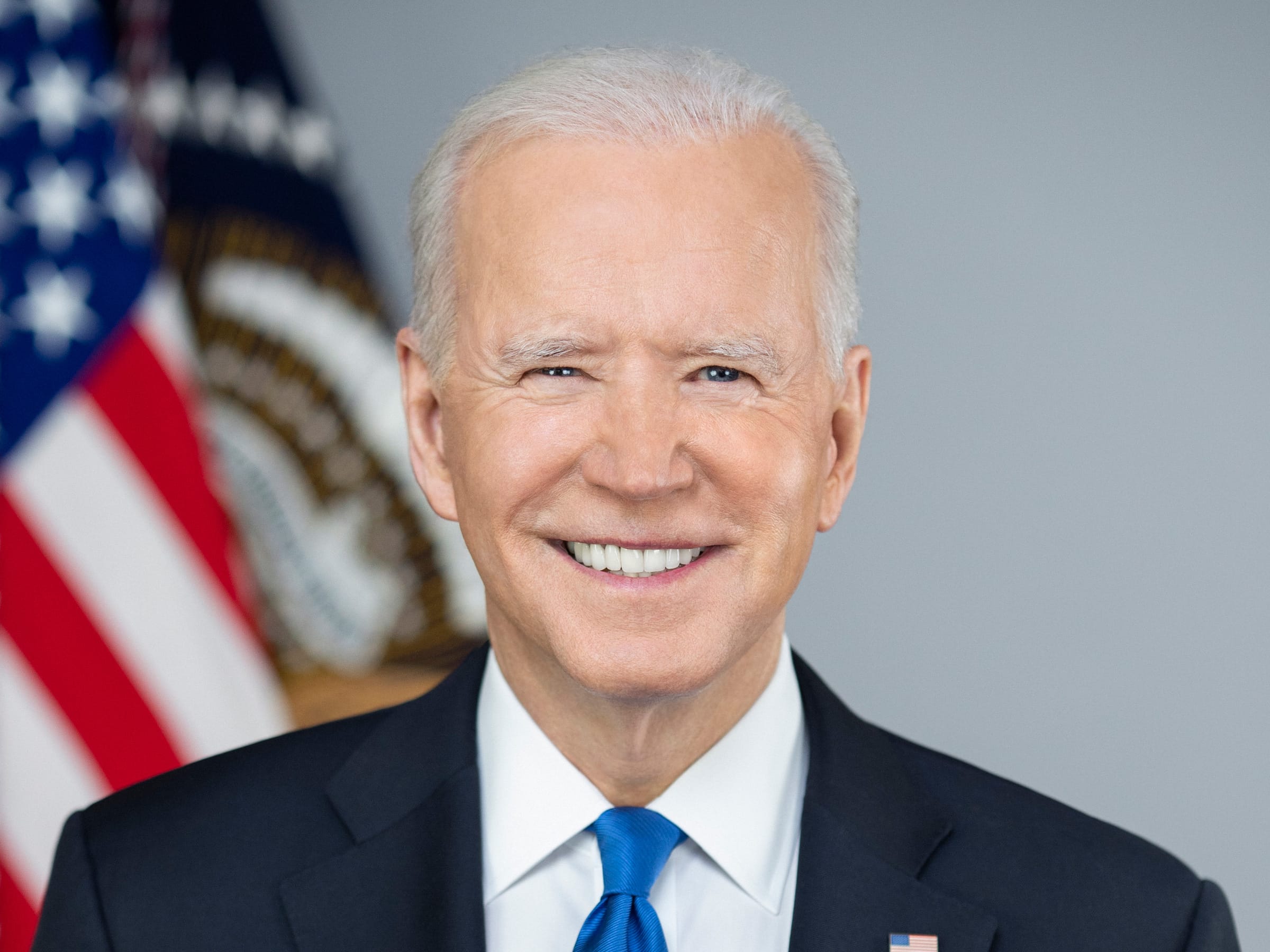
Biden addresses Congress just before his 100-day mark: President Biden’s first address to a joint session of Congress will likely cover the accomplishments of the Biden-Harris administration so far, and the way forward. President Biden will reportedly discuss policing, “his newly unveiled American Families Plan, which focuses on child care and education largely paid for by higher taxes on wealthy Americans” and his $2.3 trillion infrastructure proposal which includes funding towards programs that can assist African Americans (more details in a previous Joint Center roundup). Senator Tim Scott (R-SC) will deliver the Republican response to President Biden’s first address, and Congressman Jamaal Bowman (D-NY) will deliver the response for the Working Families Party.
BNC, “the nation’s only 24/7 cable news network dedicated to covering the unique perspectives of Black and Brown communities,” will analyze and discuss “the effects of systemic racism in housing, education, healthcare, jobs, criminal justice, and voting rights before and after President Biden’s first address to a joint session of Congress.”
On President Biden’s 100th day in office tomorrow, we expect him to reveal data about Black appointments, and the Joint Center will provide our analysis of the Administration’s performance on Black appointments in the first 100 days.
American Families Plan: President Biden unveiled the American Families Plan, a $1.8 trillion package to provide two years of free community college to Americans, “invest in making college more affordable for low- and middle-income students, including students at Historically Black Colleges and Universities (HBCUs),” provide “direct support to families to ensure that low- and middle-income families spend no more than seven percent of their income on child care, and that the child care they access is of high-quality,” create “a national comprehensive paid family and medical leave program” (championed by Congressional Black Caucus Member Colin Allred (D-TX)), extend tax cuts for families with children and American workers, and more. This plan comes after President Biden released his $2.3 trillion infrastructure package (American Jobs Plan) and passed the $1.9 trillion coronavirus stimulus package (American Rescue Plan). For coverage on the American Families Plan see CNN, New York Times, The Root, Wall Street Journal, and Washington Post.
The Hill
Black Democrats & Voting Rights: As many Congressional Black Caucus members continue to push for Congress to pass the John Lewis Voting Rights Act, some Democrats are “wary that a major elections bill could reduce their power in Congress.”
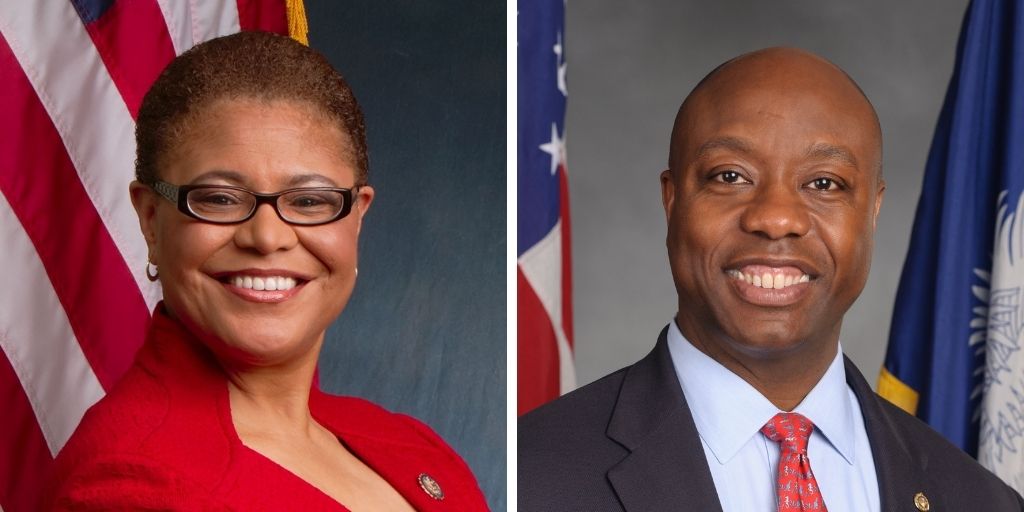
Black bipartisanship: Former Congressional Black Caucus Chair Karen Bass (D-CA) defended Senator Tim Scott (R-SC) after a Washington Post article accused the senator of providing an inaccurate historical account regarding his story about his grandfather who was “forced out of school as a third-grader to pick cotton.” In her tweet, Congresswoman Bass said Senator Scott is “an honorable man” and noted that “it doesn’t matter what party you’re in – the journey of his family, from cotton to Congress in one lifetime, should be celebrated.”
House E&C hearing on disparities in broadband: The House Energy and Commerce Committee and Communications and Technology will host a virtual hearing entitled Broadband Equity: Addressing Disparities in Access and Affordability. The hearing, hosted through the Communications and Technology Subcommittee, will take place on May 6 at 11:30 am ET.
Carter wins Richmond’s seat: Troy Carter (D) won Cedric Richmond’s U.S. House seat in a special election held last weekend. Once sworn in, Carter will serve Louisiana’s 2nd District, which is the state’s only Democratic seat, and represents “a majority-Black district centered in New Orleans and extending up the Mississippi River into Baton Rouge.” Richmond, who received the Joint Center’s 2020 Louis E. Martin Great American Award, is currently serving as senior advisor to President Biden and the director of the White House Office of Public Engagement.
Appointments

Biden nominates Donald M. Remy for Deputy Secretary of Veterans Affairs. Mr. Remy currently serves as the Chief Operating Officer and Chief Legal Officer for the National Collegiate Athletic Association (NCAA). He is a military veteran who earned a meritorious service medal when he served as a Captain in the U.S. Army. Mr. Remy, a Howard Law graduate, also clerked for U.S. Court of Appeals Judge Nathaniel R. Jones and later served as deputy assistant attorney general at the Department of Justice. With the appointment of Mr. Remy, 20 percent (3 of 15) of the major executive branch agencies have Black deputy secretaries (the number two position in the agency)—Veterans Affairs, Commerce, and Treasury.
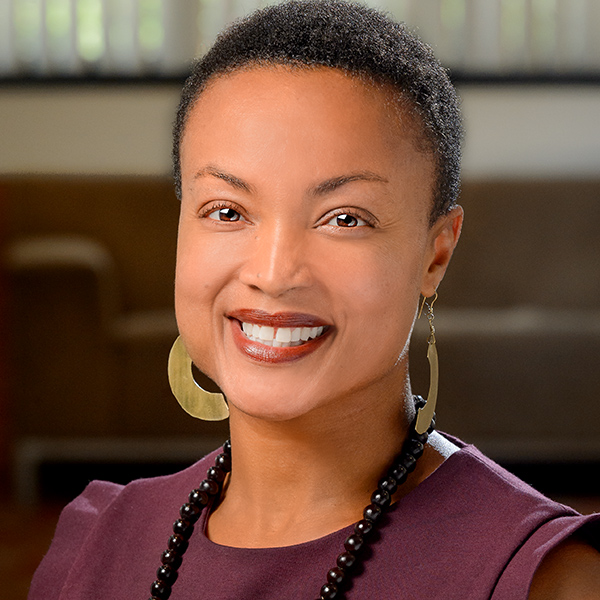
Biden nominates Shalanda H. Baker for Director of the Office of Minority Economic Impact, Department of Energy. The president has first appointed Ms.Baker for Deputy Director for Energy Justice in the Office of Economic Impact and Diversity at the Department of Energy, where she currently serves. Prior to her appointment, she was a Professor of Law, Public Policy and Urban Affairs at Northeastern University.

Biden nominates Asmeret Asefaw Berhe for Director of the Office of Science at the Department of Energy. Dr. Berhe is currently a Professor of Soil Biogeochemistry; the Ted and Jan Falasco Chair in Earth Sciences and Geology; and Interim Associate Dean for Graduate Education at the University of California, Merced. She has previously served as the Chair of the U.S. National Committee on Soil Science at the National Academies and is a Fellow of the American Geophysical Union and the Geological Society of America.

Biden nominates Frank A. Rose for Principal Deputy Administrator for National Nuclear Security at the Department of Energy. Mr. Rose is a senior fellow and co-director of the Center for Security, Strategy, and Technology in the Foreign Policy program at the Brookings institutions. From 2014-2017, he served as the U.S. Assistant Secretary of State for Arms Control, Verification, and Compliance. He has held positions at the Department of State, in the U.S. Congress, and in the private sector.

Biden nominates Robert Hampshire for Assistant Secretary for Research and Technology at the Department of Transportation. Dr. Hampshire currently serves as the Principal Deputy Assistant for Research and Technology policy at the Department of Transportation. He previously served as an associate professor at the Gerald R. Ford School of Public Policy at the University of Michigan.
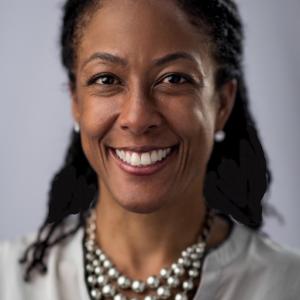
Biden nominates Dr. Kimberly L. Jones for Member of the Board of Directors of the National Institute of Building Sciences. Dr. Jones is currently the Associate Dean for Research and Graduate Education in the College of Engineering and Architecture, and a Professor and Chair of the Department of Civil and Environmental Engineering at Howard University. She has previously served on the Chartered Science Advisory Board of the U.S. Environmental Protection Agency, the Water Science and Technology Board of the National Academy of Sciences, and the Board of Association of Environmental Engineering and Science Professors.
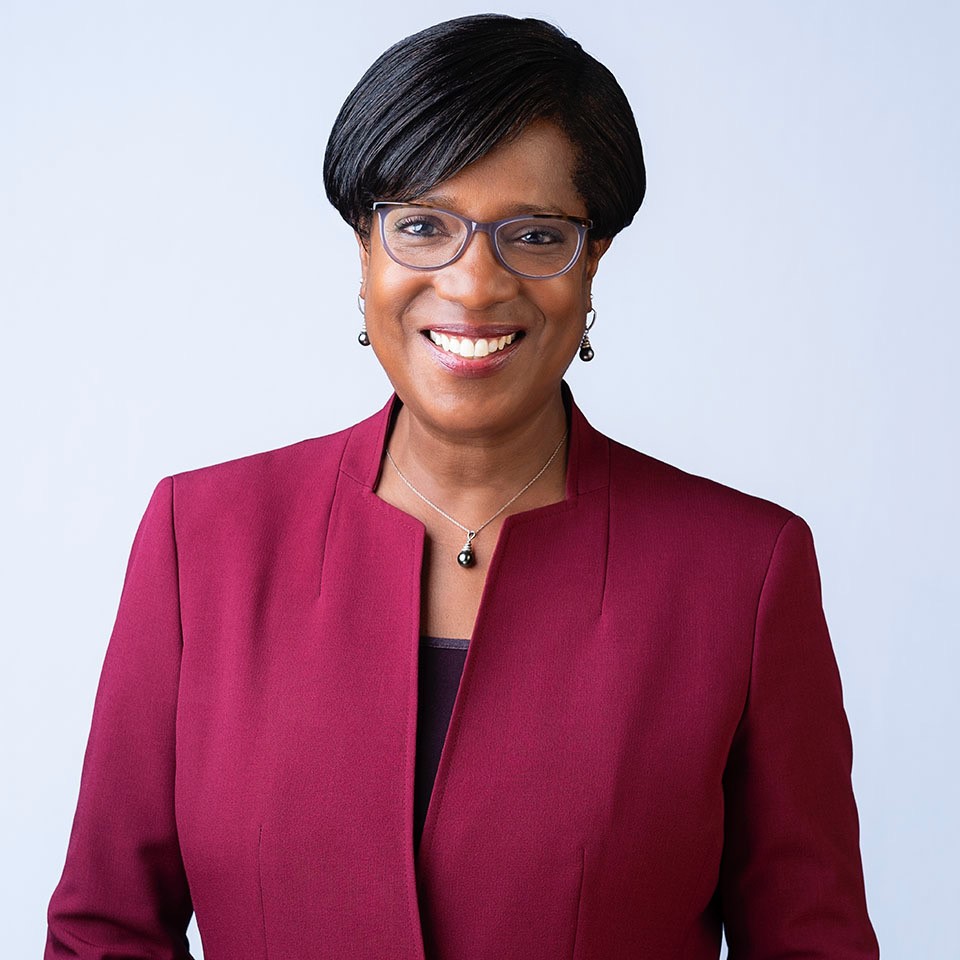
Biden nominates Dr. Miriam E. Delphin-Rittmon for Assistant Secretary for Mental Health and Substance Abuse at the Department of Health and Human Services (HHS). Dr. Delphin-Rittmon currently serves as the Commissioner of the Connecticut State Department of Mental Health and Addiction Services. She has previously held the positions of Deputy Commissioner, Senior Policy Advisor and Director of HHS’s Office of Multicultural Health Equity.
Economic Policy
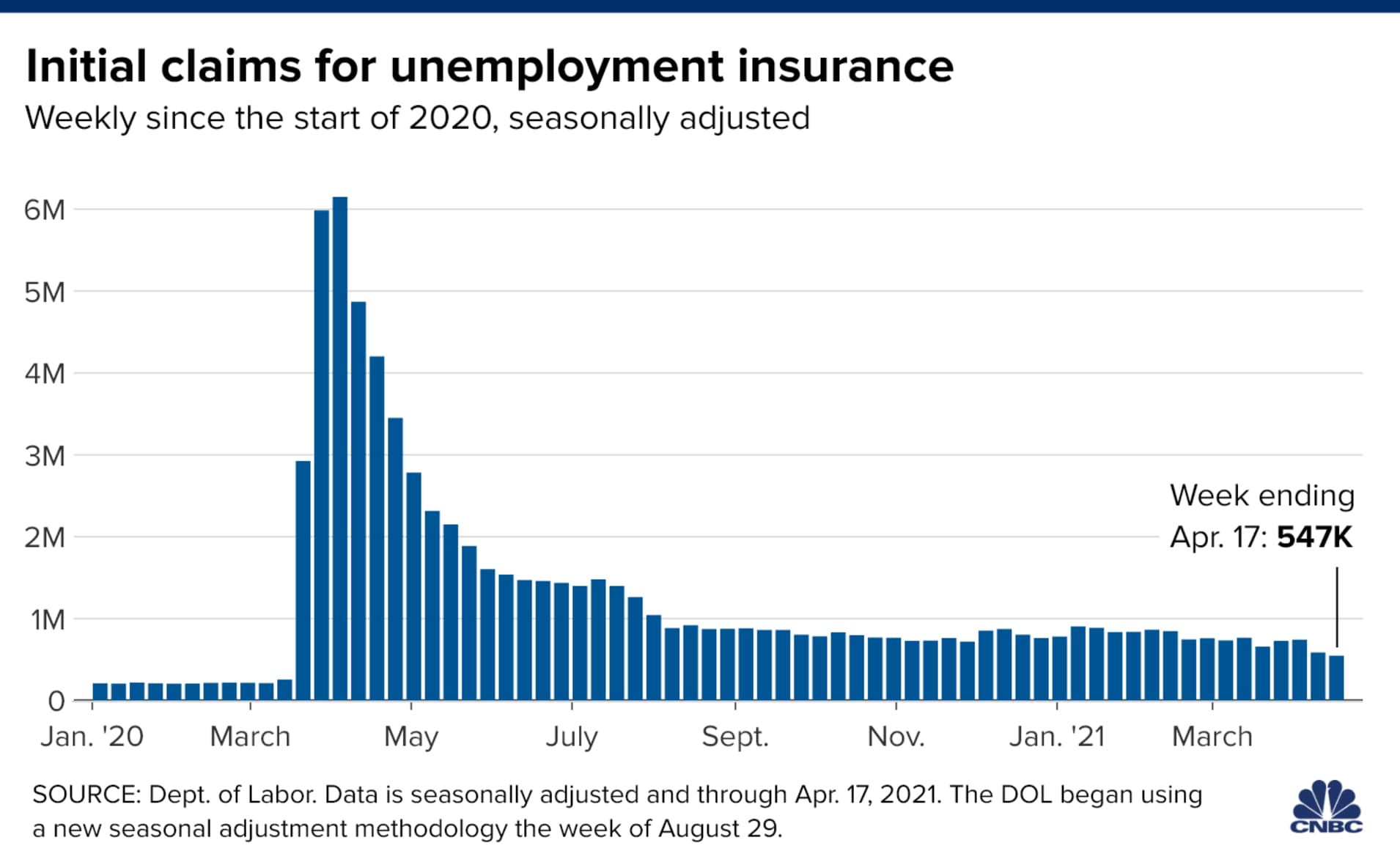
Unemployment reaches new low: Weekly unemployment claims dropped to 547,000, for the week ending April 17, significantly lower than the pre-pandemic record of 695,000.
Majority Black states restrict unemployment benefits: States with large Black populations have weaker unemployment programs, according to the Economic Policy Institute, which calls for permanent unemployment reform.
More Black economists, better policies: A more diverse economics profession would ultimately lead to better research and policy solutions, the Urban Institute argues, starting with the questions that scholars and practitioners explore and the role of structural racism in economies.
Stopping wage theft: A retaliation fund could help victims of wage theft, who are disproportionately workers of color, seek redress from wrongful firings, pay reductions, or other intimidation methods, the National Employment Law Project argues.
Black homes devalued: Bias and systemic racism are why homes in Black neighborhoods are valued much lower than the same homes in white neighborhoods, according to a Redfin senior economist.
Tech Policy

Tech accountability priorities: The civil rights group Color of Change has released its 2021 tech top priorities for a safe and inclusive internet for Black people, including breaking up monopolies, closing the digital divide, protecting privacy, and preventing algorithm discrimination.
Digital economy watchdogs: Chairwoman of the House Financial Services Committee Congresswoman Maxine Waters (D-CA) has reauthorized two task forces, one on financial technology and the other on artificial intelligence, with the goals of making sure “technology is not being used to discriminate or exacerbate existing biases under the guise of innovation.”
Curbing predictive policing tools: Lawmakers, including Sen. Raphael Warnock (D-GA), Rep. Yvette Clarke (D-NY), and Rep. Sheila Jackson Lee (D-TX), are pressing the Department of Justice to devote more scrutiny to unregulated predictive policing algorithms, calling for new, more stringent requirements on DOJ-funded research into crime forecasting tools used by law enforcement. Rashida Richardson, Visiting Scholar, Rutgers Institute for Information Policy & Law, has conducted vital research on the topic.
Affordable broadband for New Yorkers: New York law now mandates that internet providers offer low-income families broadband services for no more than $15 per month, with higher-speed plans capped at $20. The program is expected to help 2.7 million households. Affordability is one of the primary reasons African Americans do not have broadband.
Lifeline do-over: Former Congressman Rick Boucher is calling for the FCC’s Lifeline Program to be rebuilt from scratch to expand its utilization and to make the benefit directly available to individuals. Only 26 percent of eligible low-income families participate in the program, which subsidizes the cost of phone and internet services.
Big tech’s Trojan Horse? Be skeptical of technology companies’ support of privacy laws, says The Markup. Tech firms may be supporting weaker privacy laws as a way to preempt tougher laws, they report, such as those passed in California in 2018 and 2020. The Joint Center is engaging with stakeholders to examine the challenges and solutions regarding legislation on data privacy and Black communities.
Big Brother, post-COVID: The coronavirus pandemic has left in its wake major digital barriers to economic justice, including the expanded use of workplace and school surveillance and digital tracking of loan defaults, evictions, and other measures of economic hardship, the nonprofit research organization Data & Society finds.
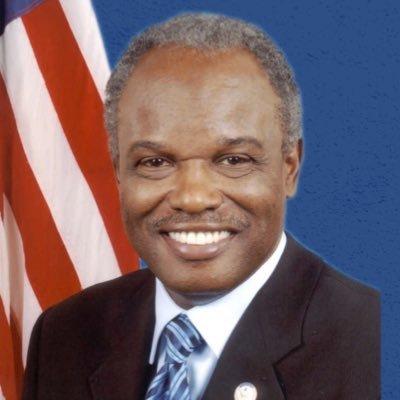
All in on broadband access: House Agriculture Committee Chair Rep. David Scott (D-GA) is pushing to provide high-speed internet by the end of the year to the 24 million Americans without it, including a rural expansion that could cost up to $150 billion. The Joint Center’s forthcoming research on expanding broadband in the Black Rural South will explore the topic in depth.
Focus on affordability: Both competition among service providers and subsidized services are necessary to make internet access affordable in cities, says the Benton Institute for Broadband and Society. Residential segregation is also a significant barrier to broadband access for Black households.
Deepfake threats: The Brookings Institution explores the significant threat to marginalized communities of “deepfake” videos, which use machine learning to make fake footage seem real. The videos, for example, could be used to discredit authentic videos of police brutality against unarmed Black people.
Truth in voting: A bill designed to fight election disinformation—the For the People act—is moving through Congress. The bill prohibits providing false or misleading information designed to prevent voters from casting their ballots and increases the penalties for doing so. Last year, Joint Center President Spencer Overton published “State Power to Regulate Social Media Companies to Prevent Voter Suppression,” that argues that State lawmakers seeking to prevent voter suppression targeted at Black voters on platforms should not be deterred by arguments that Section 230 immunizes social media companies from State liability.
Remember technology’s human impact: The Open Technology Institute calls for building equity into the technology development process as a way to prevent discriminatory features in tech products. It also presses for more diversity in the tech industry as a way to avoid biases in tech design. Black and Latina/o people account for 31 percent of the U.S. population but only 15 percent of the tech industry.
AI fair use: The Federal Trade Commission outlines best practices for achieving fairness and equity in artificial intelligence, including starting with the right dataset, remaining vigilant to discriminatory outcomes, and not exaggerating an algorithm’s ability to deliver unbiased results.
Future of Work & Learning

Jobs, not workers, are low-skilled: The label “low-skilled” unfairly stigmatizes workers, including a disproportionate number of Black workers while dismissing racial discrimination and obstacles to job training and opportunities, argues Annie Lowrey of The Atlantic.
Laying the groundwork: K-12 education must do a better job of preparing Black and other people of color for the future workforce, argues the Center for American Progress. Building upon conversations with community members in Indiana and New Mexico, CAP recommends more partnerships between K-12, higher education, and workforce systems and more funding for college and career preparation courses.
Some college, no degree: A new report documents why the odds are higher that students attending college after having a child will leave without a degree. According to the Institute for Women’s Policy Research’s analysis of data from 2012-2017, among Black student parents, 58 percent—and 72 percent of Black fathers—had left college without a degree or certificate within six years of enrollment.
Compensating for lost unions: Black Worker Centers could help offset the decline in unions for Black workers. The wages of unionized Black workers are 13.7 percent higher than those of nonunionized Black workers. Black workers are also 15 percent more likely than the general population to hold a unionized job.
Supporting Black farmers: The American Rescue Plan aims to reverse decades of federal neglect and abuse of Black farmers, who constituted less than 2 percent of all farmers in 2012. The emergency relief in the legislation provides financial assistance and loan forgiveness to Black farmers, in addition to funding research and grants at HBCUs.
COVID-19
Help where the hurt is: Targeting aid to those most in need in the pandemic’s wake and strengthening and directing state revenue to sustained investment in Black and other economically vulnerable communities are two ways states can dismantle inequities and implement antiracist policies to deliver a more equitable response and counter systemic racism, argues the Center on Budget and Policy Priorities.
Aid for community health: Community-based health providers received $150 million as part of the American Rescue Plan to continue their efforts in stopping the spread of the coronavirus in underserved communities. Sixty percent of patients at community health centers identify as people of color.
J&J gets green light: Medical experts deemed the Johnson & Johnson vaccine safe to resume despite a rare blood-clotting side effect primarily among women under 50.
Uphill climb in LA’s schools: COVID-19 likely exacerbated disparities facing Black students in Los Angeles County. A study of 14 school districts serving more than 800 Black students found that a majority lives in communities where poverty is severe and educational enrichment opportunities are rare.
Black doctors united: A group of 200 Black physicians in Philadelphia has formed a consortium dedicated to eliminating health care disparities in Black communities. The doctors and other volunteers are focused on increasing access to testing and vaccines in areas of need.
Political Studies
Help where the hurt is: Targeting aid to those most in need in the pandemic’s wake and strengthening and directing state revenue to sustained investment in Black and other economically vulnerable communities are two ways states can dismantle inequities and implement antiracist policies to deliver a more equitable response and counter systemic racism, argues the Center on Budget and Policy Priorities.
Aid for community health: Community-based health providers received $150 million as part of the American Rescue Plan to continue their efforts in stopping the spread of the coronavirus in underserved communities. Sixty percent of patients at community health centers identify as people of color.
Uphill climb in LA’s schools: COVID-19 likely exacerbated disparities facing Black students in Los Angeles County. A study of 14 school districts serving more than 800 Black students found that a majority lives in communities where poverty is severe and educational enrichment opportunities are rare.
Black doctors united: A group of 200 Black physicians in Philadelphia has formed a consortium dedicated to eliminating health care disparities in Black communities. The doctors and other volunteers are focused on increasing access to testing and vaccines in areas of need.
Movement Building
Black Voters Matter heads to Louisiana to engage voters and promote voter education.
Color of Change issues a petition and joins Haitian Bridge Alliance (HBA) and other organizations to demand President Biden end Title 42 and protect Black migrant communities.

National Black Worker Center is hosting Level Up: Increasing Black Worker Power, a weeklong series of events that will cover topics ranging from workplace discrimination to building power for Black people in the workplace. The events will begin on Monday, May 3 and end on Friday, May 7.
The Southern Education Foundation sends letters to governors and state education agencies in Alabama, Arkansas, Florida, Georgia, Mississippi, North Carolina, South Carolina, Tennessee, and Texas encouraging them to use their K-12 relief funding under the American Rescue Plan Act to “advance education equity and improve public schools.”
Events
Upcoming events include “Clinical Trials and Underrepresented Minorities: Mistrust, Misconceptions, Missed Opportunities and Moving Forward to Enhance Diversity” (Ohio State University Wexner Medical Center, April 30); “Rethinking the economics of child care and paid leave: Policies to protect workers and families” (Brookings Institution, May 12); “REMIDiversity, Equity and Inclusion” (REMI, May 14); “The Benefits and Value of Becoming a Certified Women or Minority-Owned Business” (AARP, the National Minority Supplier Development Council, and Women’s Business Enterprise National Council, May 19); “The Benefits and Value of Becoming a Certified Business through the VA or SBA” (AARP, the Small Business Administration, and the Department of Veteran Affairs, May 20).
Last week, events were held by the Center for American Progress, Committee on the Judiciary, Congressional Black Caucus Foundation, CVS Health Live, Economic Policy Institute, National Skills Coalition, and the Urban Institute.
Podcasts
TechTank Podcast Episode 17: With new investment in broadband infrastructure, can we finally close the digital divide? (Brookings Institution)
The Senators at the Center of the 50-50 Split (Politico)
To receive the Joint Center’s emails, sign-up here.

